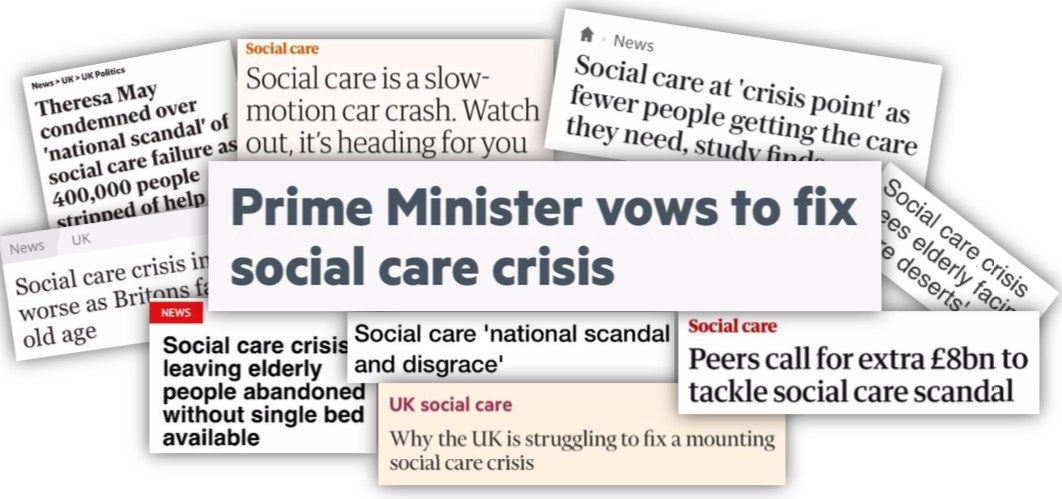Driving more men into social care roles
We wanted to investigate the issues around recruiting male care workers...
Why did we want to investigate this issue?
It is estimated that by 2025, 1 million more care workers will be needed to cope with the UK’s ageing population. With the shortfall the sector is facing, it is important to consider what the sector can do to increase recruitment and retention. With men only making up 18% of the workforce, efforts into male recruitment strategies could help fill these posts.
There is a widespread understanding that the difficulty in recruiting men to the sector is that it is understood as ‘women’s work’. That care work is seen as a women’s profession and that the core skills that underpin care work are ‘feminine’ such as relationship building, communication, nurture and empathy (Read more about the gendered perception of care work in our Women’s Work blog).
So what did we find?
Changing attitudes around care work requires a long-term solution. Andrea Marn, Marketing Sales Manager for Live Well Training Academy noted that we need to target the issue from the root, "We need to go back a bit more, the solution is targeting young men and educating them on the pluses and benefits of working in care. We need to change these attitudes and stereotypes from a young age".
It is extremely important to change attitudes that men can host these types of skills, and that these types of skills are recognised and valued. However, our understanding that this is the main reason why men are not in social care isn’t showing the full picture...
Nicola Dunn, Senior Recruitment and Retention Advisor for Devon County Council, said that "As we have been running our recruitment campaigns over the last couple of years, we have been recruiting both women and men. What we found is that men have been particularly difficult to place in domiciliary care. Providers may not have enough hours for men, so they will try and prepare runs and routes that there are enough service users who are happy to accept a male care worker."
This shows that whilst attracting more men to apply for these roles is a need, it is also required to support men throughout the recruitment process to ensure they receive the hours they want.
Nicola further went on to explain that they do receive applications from men who desire to work in domiciliary care. When designing the routes, she stated "It might not work, they might have one person and then various gaps. It is quite difficult for care providers to give them the hours that they wanted without having downtime and gaps in-between. It is quite difficult for us because we have been promoting all sorts of roles to attract all sorts of people, our promotional videos and photos include men, but when we get the applications, it’s hard to place them."
Nicola further states that as they are facing a huge workforce shortage, it is difficult to not be able to provide work for men requesting it.
Nicola also pointed out how important it is to have men in social care, "We know men in the sector are very valuable because they are often quite flexible with the hours they can work, they can work full time hours as they may not have the same childcare responsibilities as women, meaning they can be super flexible."
This information shows the wider need to properly identify the further barriers to driving men into social care, aside from the more general gender stereotypes that may hinder this aim. By understanding what works and what doesn’t, then recruitment strategies for men in care can consider the barriers and find solutions.
What is the government doing about it?
The Adult Social Care Reform White Paper recognises the need for ‘new policies that identify and support best recruitment practices locally’ and that the UK government will ‘provide support’ to this aim. There is still no news on how these aims will be developed or funded, and after our livestream with Gillian Keegan, we learnt that the specifics of implementing strategies to meet these aims are still being developed.
What do we recommend?
Currently there is no statements on the role of gender within the Adult Social Care Reform White Paper. We think that the UK government needs to consider the role of gender in recruitment and retention as a sector made up by 82% women. Whilst the sector faces mass staff shortages policy makers need to put efforts into firstly how women are bearing the brunt of this crisis and how supporting men into social care roles would support the sector and contribute to reforming gender stereotypes about social care. There needs to be targeted funding and recruitment campaigns that target improving the gender diversity in the social care workforce. We need to share stories of men who care, to dismantle gendered stereotypes that come with social care work, to bring men into the workforce!
Written by: Gabriella Neal
Recent Posts




